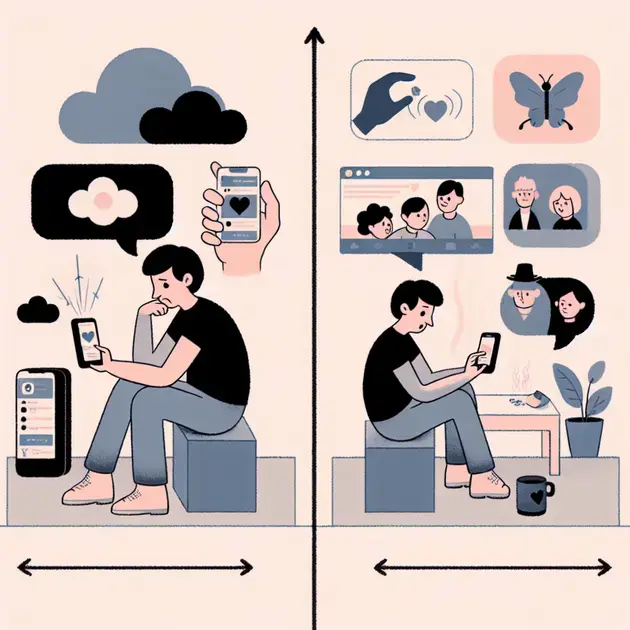“`html
The Dual Nature of Social Networking: Connection and Loneliness
In recent years, social networking sites have become ubiquitous in our daily lives, with millions of users logging in to connect, share, and engage with others. While excessive use of these platforms has often been linked to increased feelings of loneliness, recent findings suggest a more nuanced relationship between social networking and our emotional well-being. In particular, the motivations behind how we use these platforms can play a crucial role in either exacerbating or alleviating feelings of isolation.
On one hand, spending too much time on social networking sites can lead to a paradox of connection — where individuals may feel more isolated than ever, despite the vast online networks at their fingertips. Passive consumption, such as scrolling through feeds without engaging, can foster feelings of inadequacy as users compare their lives to curated highlights of others. This phenomenon often results in a sense of alienation and loneliness, as superficial interactions fail to provide real emotional support or meaningful connections.
However, research indicates that when individuals approach social networking with the intent to foster genuine connections, the outcomes can be markedly different. Motivated use — engaging actively with others, participating in discussions, and reaching out to make plans — can help alleviate feelings of loneliness. By focusing on building relationships and nurturing a sense of companionship, users may find solace and support through these digital platforms.
The key to leveraging social networking for emotional well-being lies in intentionality. Users must evaluate their engagement with these sites and consider their motivations. Are we passively consuming, or are we actively seeking out connections? The latter can lead to stronger bonds with friends and family, ultimately combating feelings of loneliness.
In conclusion, while excessive use of social networking can contribute to feelings of isolation, the way individuals choose to engage with these platforms can significantly influence their emotional health. By embracing motivated and meaningful interactions online, users can pave the way for companionship that enriches their lives and diminishes the loneliness that can so often accompany our digital age. It’s essential for users to be mindful of their social networking habits, focusing on connection and engagement, rather than allowing passive scrolling to dominate their online experiences.
Spending excessive time on social networking seems to significantly contribute to feelings of loneliness. However, a new article suggests that purposeful engagement with social networking sites for the purpose of connecting with others and experiencing companionship can also help mitigate these feelings.
“`
